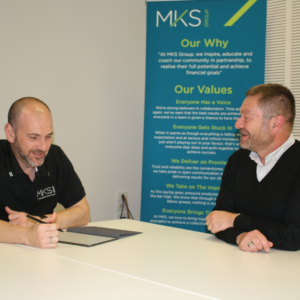Everyone must pay their taxes, and no one is ever exempted. This also means that your small business has to pay. There are many expenses common to small businesses, and there are other expenses that are specific to the nature of the goods or services that your business provides.
Below are some examples of common tax deductions for small businesses:
- Operating expenses include accounting, administration, advertising and marketing, office premises, office running expenses, trading stock, legal fees, insurance and vehicle expenses.
- Employment expenses include salary and wages, fringe benefits, superannuation, payroll tax and training costs.
- Other operating expenses may include things specific to your business, for example, point of sale systems, freight, professional membership fees, professional education, protective equipment, tools or specialised software.
- Capital expenses include machinery and equipment, vehicles, furniture and computers. Depreciation for these assets may also be deductible if the expense was not written off immediately.
- Repairs and maintenance to assets and business premises.
Expenses must relate to the running of the business and providing the goods or services that your business offers.
Some common expenses that are not deductible are fines and penalties, provisions for employee leave, donations to entities not registered as deductible gift recipients and entertainment.
Regardless of the tax deduction, there are ways of ensuring that this tax time can be hassle-free. Take note of the following tips to find out how:
1 – Implement Good Record Keeping
You may think that you don’t need to keep such records, but this is simply not true.
In fact, a lot of small businesses would even go as far as keeping receipts for everything they buy. If a business is being audited, you would need to show exactly where all your money has been distributed. This information from good record keeping will help you understand your tax, superannuation and employer obligations.
Remember, without proper records, you may not be able to claim everything that you’re entitled to come tax time. Implementing good record keeping also entails having all your necessary paperwork handy. Make sure that you have a list of them so that you may easily identify which are which.
2 – Find a Reputable Tax Professional Who Is Knowledgeable

As a small business owner, you may find yourself a bit confused about the tax laws or what to do about them. That is why you need to hire a reputable tax professional who knows the ins and outs of the tax business.
Tax professionals make your life easier, after all they chose to go into tax and small business services, you chose to RUN your own business. Tax professionals like the team at MKS Group can help you maximise your tax deductions, help avoid an audit, provide peace and sanity and ensure everything is tax compliant. Leaving you with the sole focus of running your own business. So what are you waiting for? Contact the team at MKS Group today.
3 – Coordinate with the ATO to Correct Any Errors
This is also an important part of the process, especially if you are dealing with mistakes.
Sometimes, you may have forgotten to include something in your returns, or you may have put the wrong things. Whatever the reason, you should correct any error as soon as possible. In some cases, there are legal time limits to correcting mistakes. You may incur interest and penalties, if the amendment increases the money you owe.
4 – Stick to the Deadline and File on Time
You must remember that filing your tax returns on time is important. There may be cases when people were late on filing despite having to pay penalties.
Of course, it is important to pay on time, but there is also a time limit. In such a case, you must know when the deadline is. There is a penalty for every month that your taxes were not filed. That being said, it is also important to pay on time to avoid this penalty. If you don’t lodge your tax return through a registered tax agent, you must submit your returns by 31 October.
5 – Optimise Depreciation Deductions

This is especially true if you are in business for a long time. There are times when you have assets that you have purchased, but you cannot use all of them at once. Some examples of depreciating assets include tools, equipment, computer, laptops, office furniture, office equipment and motor vehicles (just to name a few). If you have been running your business for some time it may be best to get in contact with expert tax agents to ensure you are taking full advantage of the depreciation. At MKS Group our experienced tax advisers understand all your business obligations and know how to get the most out of your business tax return, including optimising depreciation costs. Contact the team today to learn more.
Conclusion
Tax payments do not have to be complicated. With enough preparation and understanding, you will be able to accomplish them all, despite your business being small or just starting up.
All you have to do is to make sure that you follow all the tips and suggestions and let your tax professional help you as well.
With all of that being said, if you are looking for a well-trusted small business accountant, look no further than our experts here at MKS Group in Moonee Ponds. We provide end-to-end accounting and bookkeeping services that help scale & grow businesses. Call us today and let us help you prepare and pay your taxes on time.
Read More Blogs
Accurate Logbook & Odometer Readings: Essential for FBT Compliance
As the end of March approaches, so does the conclusion of the Fringe Benefits Tax…
Unlocking Success: The Benefits of Coaching for Small Business Owners
Understanding Your Minimum Repayment Obligations
6 Tips for Small Business Owners Preparing for the Christmas period
Everything You Need to Know About Your Work From Home Deductions
If you worked from home during the 2024 financial year, this blog is for you!…
3 Ways to Reduce Business Expenses Without Sacrificing Quality
In the dynamic world of small business, maintaining a lean operation without compromising on quality…







